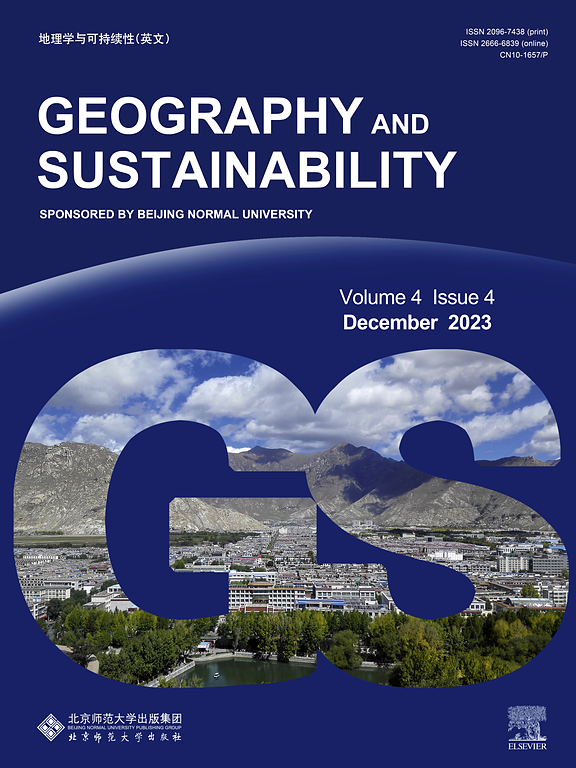IF 8
1区 环境科学与生态学
Q1 GEOGRAPHY, PHYSICAL
引用次数: 0
摘要
在当前全球变暖的背景下,了解不同气候带的城市热复原力(UTR)动态至关重要。本研究旨在考察城市形态、蓝绿基础设施和气候因素之间影响 UTR 的复杂互动关系。我们的研究超越了比较城市和农村热差异的传统方法,创新性地通过评估极端热事件造成的城市干扰来测量 UTR。为了提高准确性和可靠性,我们采用了人工智能驱动的蒙特卡罗模拟框架。我们的研究结果强调了蓝绿空间在提高 UTR 方面的关键作用,而城市形态往往具有抑制作用。此外,大气湿度也是影响 UTR 的关键因素。有趣的是,这项研究发现了不同的气候反应:密集的城市区域增强了干旱和寒冷地区的恢复力,但却降低了热带和温带地区的恢复力。这些发现强调了在可持续城市生活和基础设施发展之间取得平衡的必要性。本文章由计算机程序翻译,如有差异,请以英文原文为准。

Dissecting the natural and human drivers of urban thermal resilience across climates
In the context of current global warming, understanding urban thermal resilience (UTR) dynamics across different climatic zones is crucial. This study aims to examine the complex interactions among urban morphology, green-blue infrastructure, and climate factors affecting UTR. Moving beyond traditional methods that compare urban and rural thermal differences, our research innovatively measures UTR by evaluating urban disturbances caused by extreme thermal events. To improve accuracy and reliability, we utilize an AI-powered Monte Carlo Simulation framework. Our findings emphasize the critical role of blue-green spaces in boosting UTR, whereas urban morphology often has a suppressive impact. Additionally, atmospheric humidity is identified as a critical factor affecting UTR. The study interestingly finds varied climatic responses: dense urban areas enhance resilience in arid and cold regions but reduce it in tropical and temperate zones. These findings highlight the need for a balance between sustainable urban living and infrastructure development.
求助全文
通过发布文献求助,成功后即可免费获取论文全文。
去求助
来源期刊

Geography and Sustainability
Social Sciences-Geography, Planning and Development
CiteScore
16.70
自引率
3.10%
发文量
32
审稿时长
41 days
期刊介绍:
Geography and Sustainability serves as a central hub for interdisciplinary research and education aimed at promoting sustainable development from an integrated geography perspective. By bridging natural and human sciences, the journal fosters broader analysis and innovative thinking on global and regional sustainability issues.
Geography and Sustainability welcomes original, high-quality research articles, review articles, short communications, technical comments, perspective articles and editorials on the following themes:
Geographical Processes: Interactions with and between water, soil, atmosphere and the biosphere and their spatio-temporal variations;
Human-Environmental Systems: Interactions between humans and the environment, resilience of socio-ecological systems and vulnerability;
Ecosystem Services and Human Wellbeing: Ecosystem structure, processes, services and their linkages with human wellbeing;
Sustainable Development: Theory, practice and critical challenges in sustainable development.
 求助内容:
求助内容: 应助结果提醒方式:
应助结果提醒方式:


